- Home
- Kathryn Lasky
Lucy Page 8
Lucy Read online
Page 8
“You do?”
“Yes, and she is heartily disapproved of by my parents,” he said with barely concealed frustration.
“Is she here?”
“She’s on the island but not here at Bellemere.”
“Who is she?” Lucy asked, suddenly curious.
“Her name is Anna Green.”
Lucy gasped. “Anna Green the … the …”
“Jewess. Yes, she is Jewish. And I met her here on the island last summer. Her family began coming here a few years back. They found the climate agreeable for Mrs. Green. At least, the weather and sea breezes were suitable, not the climate. The climate is not good for Jews. We met just last summer for the first time. You are so right when you say the island is tribal.”
“I’m sorry for you.”
“Well, I’m sorry for you.”
“Why? Because your mother wants to make a project of me? Whom does she have in mind as the perfect not-too-rich-but-of-good-stock match for a would-be bishop’s daughter?”
“That gent over there.” He nodded toward a thin young man with sandy-colored hair.
“He looks perfectly decent, I suppose.”
“He is perfectly decent. A distant cousin from the poor branch of the Benedicts. Not very bright, however, and not for you.”
“So,” Lucy continued, smiling, “you feel that you know the sort of man for me, I take it?”
“Not the sort, but specifically — Phineas Heanssler.” Lucy felt herself sway a bit. Gus grinned and grabbed her elbow. “Steady there, old girl.”
“I’m sure you are mistaken,” Lucy said, removing her arm from his grip. “Please put this out of your mind. It’s ridiculous. Utterly ridiculous.”
Gus raised his eyebrows. “I have the pictures.”
“What pictures?” Lucy’s eyes flashed with anxiety.
“From when you were on Desperate Lark.”
“But Phineas wasn’t on the yacht. He was with you — until we came back, and then you were taking the ladies back to shore on the steam launch.”
“He caught sight of you from the steam launch when we were sailing out to the Dog Islands. I could tell he was mesmerized. He asked me when we came up close for a series of shots if I could take one of you. I teased him a bit about it and promised I would make a copy for him. Then when he got on board — well, you should see the pictures. He’s hardly tending to the yacht at all. Although I have to say, you did a fine job at the helm.”
“Why didn’t your parents invite him to this party?”
He coughed a bit before answering. The question seemed to have thrown him slightly. “As you said. It’s all very tribal. Anna Green and Phineas Heanssler are not our tribe,” he said bitterly.
Our kind, Lucy thought.
“Thank you, Gus. Thank you for speaking so … honestly!” She turned and went back into the ballroom.
“Oh, there you are, my dear!” Lucy’s mother bustled up to her with a brittle sparkle in her eyes. “Come here. I want to introduce you to two lovely young gentlemen. This is James Benedict and this is Percy Wilgrew, the Duke of Crompton. Gentlemen, may I present my daughter, Lucy. We are here for the season.” This time, the word season resonated with confidence.
The duke picked up Lucy’s hand and kissed it lightly. She could smell the sweet oil that glistened over his sparse dark hair.
“It’s a pleasure, Miss Snow.” The smooth tones of his polished accent washed over her. “And how are you enjoying Bar Harbor?”
“Very much. It’s wonderful to be so close to the sea.” She glanced at her mother to make sure she’d answered correctly, but there was nothing to fear. Marjorie was beaming.
“How marvelous. Indeed, in that lovely frock, you look like you just stepped out of the sea yourself. A veritable ocean goddess.” The orchestra played the opening notes of a waltz, and he offered Lucy his hand. “May I have the honor of a dance?”
Lucy hesitated, and Marjorie shot her a warning look. She took a deep breath. “I would be delighted.”
“LUCY, YOU MIGHT COMPLAIN about the Duke of Crompton’s hair oil, but I shall tell you right now, he is considered the smashing success of the summer. He is being taken up and he’s been here a very short time.” It was the day after the ball, and Lucy was walking with Marjorie to the Abenaki Club, where they’d been invited for tea.
Lucy was quickly learning the code in which her mother spoke. A corollary to “in the thick” was “to be taken up,” which meant being ushered into the inner circles of the summer island society. The two words inner circles, however, brushed with the remnants of Marjorie’s Southern accent, came out as “innuh suckles,” which reminded Lucy of pigs at a trough.
Her mother stopped walking and turned to Lucy. She squinted at her for a moment. “Now, I would recommend not skinning your hair back quite so tightly under that bonnet but allowing a curl or two to show.” She reached up under the brim of Lucy’s hat and tugged at a tendril. “We don’t want you looking too schoolmarmish.”
“Oh, Mother, you know how I hate having my hair fussed with.”
“Lucy, don’t say that word ‘hate.’ It’s an ugly word and not becoming. ‘Dislike’ perhaps, or ‘not inclined.’”
Lucy cocked her head a bit. “Do you really dislike Anna Green, Mother?”
“Now, why ever would you ask a thing like that? I don’t dislike anybody. She is not our kind, that is all. It’s not a question of dislike.”
Lucy pressed her lips together as she readjusted her hat and began to walk on.
Marjorie quickened her pace to keep up with her. “I believe the duke enjoys art. You might tell him about that exhibit you went to last spring.”
“The one about the Arctic at the natural history museum?”
“No no, not natural history. The painting exhibit at the armory. The one with the Stannish Whitman Wheeler paintings, particularly since Mr. Wheeler is to be in residence here this summer. It is an ideal topic of conversation.”
With her curls now pulled down and bouncing in coquettish merriment, and armed with an ideal topic of conversation, Lucy supposed she was fit for the tea table. This time, they had been invited by Mrs. Van Wyck, Mrs. Forbes, and Mrs. Bannister, true bastions of the summer community.
“Why, do you know, he already has a jam pot with his name on it? Can you imagine? I think it is so quaint, this tradition of the club.” Marjorie was talking nonstop as she expounded on the duke’s virtues.
Lucy could not imagine how this “quaint tradition” could be so meaningful as to occupy so much of her mother’s mind. The Abenaki jam pots were small wooden vessels that held a half cup of jam for the popovers that were served with afternoon tea. One had truly arrived in Bar Harbor society when one’s name was painted on a jam pot. Apparently, the duke had reached this watershed moment in his social evolution on the island. Marjorie and the reverend had discussed thoroughly the possibility of their achieving this lofty pinnacle. The old bishop’s pot, however, was still displayed on the shelf in the main parlor, and the Snows had agreed that because the bishop was still alive, it might seem awkward for there also to be a pot with their own surname inscribed.
Lucy and her mother crossed the lawn of the club and made their way up the wide stairway to the porch. The white fan-backed wicker chairs reminded Lucy of a gathering of gigantic butterflies.
“We don’t want to be too early, or never too late. Ah! Perfect. Mrs. Bannister is here but not Mrs. Van Wyck or Mrs. Forbes. I think her daughter Matilda is coming. ‘Muffy,’ they call her, but perhaps you should call her Matilda. Doesn’t pay to be too familiar right off the bat. You know she’s engaged to the Earl of … of something or other.”
“My dears, do sit down,” Mrs. Bannister said, gesturing to the chairs. “The others will be here shortly, and I have taken the liberty of inviting the Duke of Crompton. He is the most charming young man. We are all just mad for him. A very witty fellow. Life of any party. Ah, here he comes now with the Forbeses and Cornelia Van Wyck.�
��
“Muffy just beat Tom Benedict soundly at tennis,” the duke announced. “I can’t imagine what she’ll do to her future husband, the earl. They’ll have to get those grass courts up to snuff when you arrive, my dear!”
“Grass!” Muffy said in a shocked voice. “I only play on clay. Well, Daddy will fix that.”
“I’m sure he will.” There was a slight mocking glint in his vivid dark eyes. Lucy looked over at her mother, who was rapt with attention and hanging on every word the duke said.
The duke continued, “I think that England can stand to learn a lot from young American ladies. We’ve become — how should I put it? — slightly stultified in our ways.”
“How nice of you to say that, Your Grace.” Lucy’s mother was absolutely beaming.
“Firstly, no need to call me Your Grace, dear Mrs. Snow. Just Percy, if you please. And secondly, I didn’t say it because it was nice. No, I mean it. We have much to learn from the likes of you.” This time he looked directly at Lucy.
It was a gracious and handsome speech. With his refined manners, Percy was a welcome change from Eldon Drexel and the other young gentlemen she had met in New York. She must try to be pleasant to him, if only for her mother’s sake. “I’m not sure if you saw it when you were in New York,” Lucy began, “but there was a wonderful portrait exhibit of Stannish Whitman Wheeler.” She gave a quick glance to her mother, who was nodding encouragingly. Then she absently lifted her hand and twirled a curl around her finger. I can do this if I really try, she thought. It’s not so bad. She could feel the pleasure radiating from her mother like quiet ripples in a pond.
“Mr. Wheeler is to paint me,” Matilda Forbes said eagerly. Lucy could tell she wasn’t bragging but seemed truly excited by the opportunity.
“What an honor!” Lucy exclaimed. “Do you know what you might wear, Matilda?”
“Oh, you must call me Muffy,” she said, smiling. “And I have no idea what to wear. Perhaps you could help me choose?”
She heard her mother suppress a brief but ecstatic little yelp that was transformed into a quick cough.
“It would be my honor,” Lucy said, feeling a flicker of pleasure. Muffy seemed so much nicer than Lenora Drexel or any of the young ladies she had met at the reception in New York.
“Oh, there you are, Dolly!” the duke exclaimed as the serving girl came up and set down two baskets of scones. “I wrote Mama in England about these scones. Do you suppose you could somehow coax the recipe from the cook?” He had been removing his gloves finger by finger, and Dolly seemed almost mesmerized by the graceful movements. She had already told the other girls in the kitchen about the elegant Englishman who wore fine gloves to tea in the heat of the afternoon. Lucy looked down and saw that his legs were crossed and he wore exquisite shoes of polished fawn-colored leather that looked almost as supple as that of his gloves. She thought wistfully of the dark, glowering sea boots of Phineas Heanssler, stained with salt water.
“Oh, it ain’t difficult, sir,” Dolly said, beaming. “I’ll write it down for you myself. It’s all in the baking, you know.”
“No, I don’t know, but I trust you do.” Dolly nearly swooned. She was clearly charmed by the Duke of Crompton, who cut quite a figure with his lilac silk cravat and exquisitely tailored linen jacket with a bright wildflower in the lapel. He was as different from a Maine fisherman as one could imagine. Dolly set down the jam pots, all of which were inscribed except for the Snows’, which seemed glaringly blank.
“I must say that I like the informality here, where we all know the staff by their first names, as opposed to Newport,” the duke said as Dolly scurried out.
“Oh, Dolly Beal. Everyone knows the Beals,” Mrs. Forbes replied. “She, her mother, her grandmother, and her great-grandmother have all worked here at the Abenaki. They are fixtures. Now, of course, in Newport when I was just a girl …”
As Mrs. Forbes and the duke compared notes on Newport and Bar Harbor, Lucy noticed her mother’s eyes traveling from pot to pot. She could almost read her mind and commended her silently for keeping up the lively stream of conversation. Marjorie Snow did, however, manage to drop Aunt Prissy’s name at least three times before the duke asked, “Is that Priscilla Bancroft Devries?”
“Indeed. We’re from Baltimore. Prissy is Lucy’s godmother. We have been best friends … well, really family, for years. As a matter of fact, Lucy has a dollhouse that Prissy gave her that is a replica of White Oaks.”
“Really? How wonderful,” the duke said.
“Yes. She simply adores Lucy.”
“That does not surprise me.” He smiled. “Does Mrs. Devries have children of her own?” the duke inquired.
“No, she was not blessed as we were.” Marjorie reached over and gave Lucy’s hand a squeeze. “Lucy is like a daughter to her. Her only child.”
“I see,” the duke said with a mild note of exclamation.
Lucy was uncomfortable with the direction the conversation was taking. She turned to Muffy and began asking her about her wedding to the Earl of Lyford.
“Charles Worth is making your dress? How exciting!”
“Yes, we’re going to Paris in early September for fittings. Daddy wanted him to come here, but his schedule wouldn’t permit. I am so happy! I really wish we could be married in Paris.”
“Don’t be ridiculous, darling!” her mother chimed in. “You’ll be married in King’s Chapel in Boston. That’s how Forbeses do it.”
Muffy made a delicate little moue with her mouth and rolled her eyes.
“The Reverend Snow performed the nuptials for Miss Phoebe Schuyler to John Drexel just this past spring,” Marjorie interjected. “She also wore a Worth gown. It was … was simply magical! The man is a wizard, isn’t he!”
This remark seemed to sit well with all at the table. The other women looked at her brightly, as if she had said something extremely clever and quite beyond the boundaries of the usual drabness of a minister’s wife. Marjorie basked in the glow of their regard and wondered if a jam pot with their name might not be out of reach this summer.
IT HAD BEEN OVER A WEEK since Lucy had seen Phineas. She thought often of the fragrance of the boatyard, how the swirl of varnish, sawdust, and fresh paint mingled with the sea air. But his invitation, “come back anytime,” had not been exercised. Was she to just walk right in carrying her tennis racket as before? Thankfully, there hadn’t been many people around that day because it was a Saturday. She had been walking the same route she had before when they had encountered each other. Once, when she was in the post office mailing a letter for her father, she thrilled when she heard someone behind the counter yell into the backroom to ask if Phin Heanssler had picked up the package yet. She had almost been ready to offer her services as a courier. She thought of that now as she abruptly turned and headed toward the little red clapboard building.
“Ah, just the girl I’ve been looking for! This got left out of the batch we sent over to the rectory.” Carrie Welles, the postmistress, held up a letter and waved it. “For you, I think. That is, if you are Lucy. Thinking of building a yacht?” She laughed. “Don’t know why he decided to waste money on a stamp when he could have walked it over hisself. Guess those Heansslers make so much money from their yacht building that they can throw money about on stamps.”
Lucy reached out for the letter. “Thank you,” she murmured. She tried to appear calm, but her hand was trembling. Carrie Welles was a notorious snoop. The last time Lucy had come into the post office, she had seen the woman holding a letter up to the light as if to read the contents.
Lucy had a sinking feeling as she read the opening lines. So stiff, so formal, like he hardly knew her at all.
Dear Miss Snow,
A scarf was left on Desperate Lark. We are not sure if it is yours or one of the other ladies’ who was aboard that day, so I thought I would write you first to ask. I could either bring it by the rectory, or if it would not inconvenience you too much, you might stop by here to see
if it is yours. Perhaps after church this Sunday?
As Lucy read, her eyes opened with delight. The whole thing was an elaborate ruse. She had been wearing no scarf and he knew it. She felt a flutter in her chest as she tucked the letter into her pocket, safe from Carrie’s prying eyes. He wanted to see her again.
After Sunday’s early morning service, Lucy told her mother that she was not feeling well, and asked permission to go back to the house rather than attend the late morning service. There was always a reception afterward with iced tea and sandwiches, so there would be plenty of time for her to visit the boatyard before her parents returned home.
Phineas was waiting for her in the lofting room that overhung the first floor in the main part of the building. He leaned over the railing. “Come up here. I have something to show you.”
“A scarf perhaps?” Lucy asked, raising one eyebrow.
He laughed. “Clever, wasn’t it?”
“Very clever,” she replied, and began walking up the stairs to the second floor.
She looked about her. Sunlight poured through the high windows of the lofting room. It was a simple, bright place where imagination and practicality met and were translated into a reality in the mysterious alchemy of the shipbuilder’s mind, becoming yachts, fishing boats, coastal schooners, skiffs, and dories that could ply the seas in all sorts of weather.
Phineas was standing at a small drafting table. “Look at these.” He indicated some photographs spread out on the table. “Here’s a stool you can sit on.” Lucy came over, climbed up on the swivel stool, and bent over them.
“That’s me!”
“You at the helm, and you sitting there just when we first entered the channel, and some more of you at the helm.”
“Gus gave these to you, Phineas?” Lucy asked. He nodded. It seemed odd to say they were good when they were all of her. So she looked at them one more time, then spun around on the stool to look about at the spacious loft.

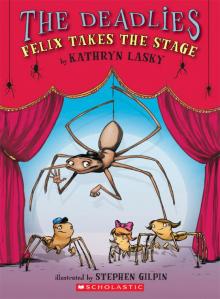 Felix Takes the Stage
Felix Takes the Stage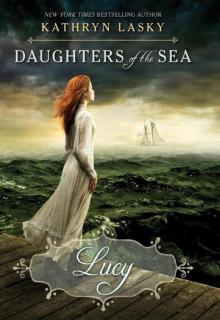 Lucy
Lucy Lone Wolf
Lone Wolf Broken Song
Broken Song The Shattering
The Shattering The Crossing
The Crossing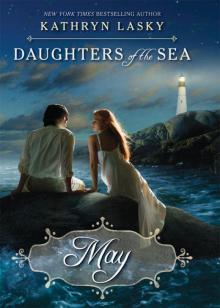 May
May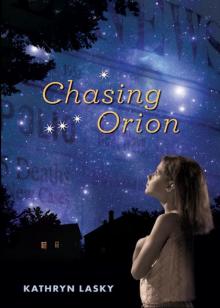 Chasing Orion
Chasing Orion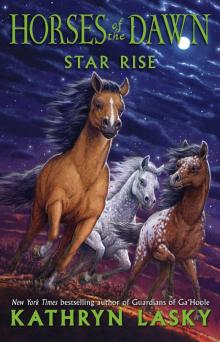 Star Rise
Star Rise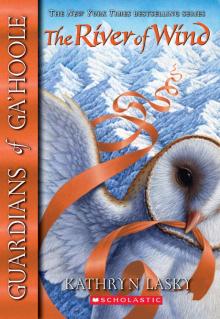 The River of Wind
The River of Wind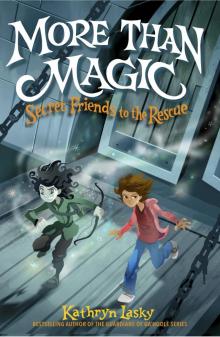 More Than Magic
More Than Magic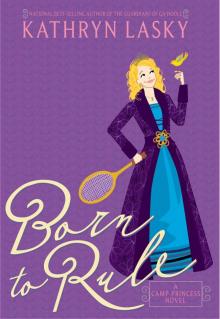 Born to Rule
Born to Rule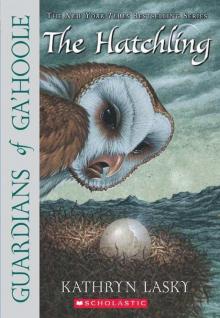 The Hatchling
The Hatchling The Rescue
The Rescue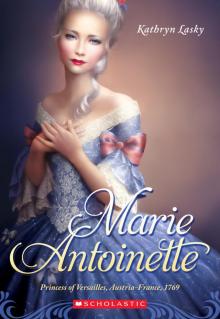 Marie Antoinette: Princess of Versailles, Austria - France, 1769
Marie Antoinette: Princess of Versailles, Austria - France, 1769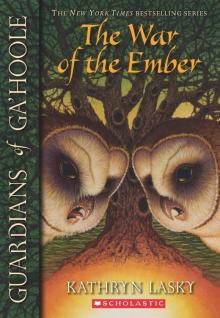 The War of the Ember
The War of the Ember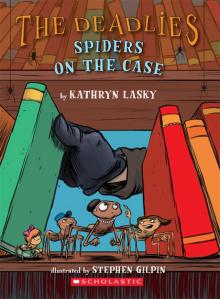 Spiders on the Case
Spiders on the Case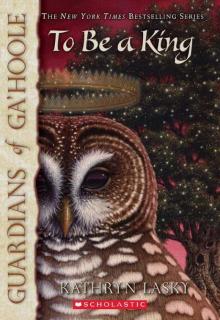 To Be a King
To Be a King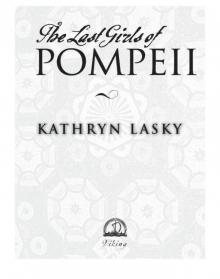 The Last Girls of Pompeii
The Last Girls of Pompeii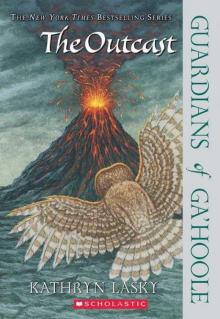 The Outcast
The Outcast Exile
Exile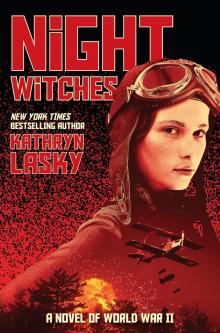 Night Witches
Night Witches Spirit Wolf
Spirit Wolf The Quest of the Cubs
The Quest of the Cubs Frost Wolf
Frost Wolf The Keepers of the Keys
The Keepers of the Keys The Extra
The Extra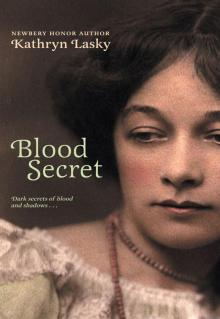 Blood Secret
Blood Secret Watch Wolf
Watch Wolf Blazing West, the Journal of Augustus Pelletier, the Lewis and Clark Expedition
Blazing West, the Journal of Augustus Pelletier, the Lewis and Clark Expedition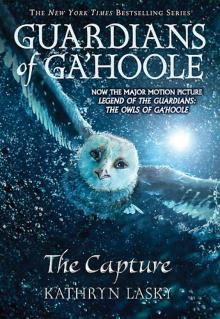 The Capture
The Capture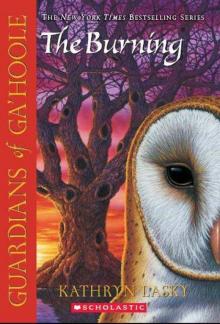 The Burning
The Burning The Journey
The Journey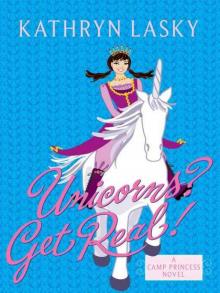 Unicorns? Get Real!
Unicorns? Get Real! The Escape
The Escape Star Wolf
Star Wolf Ashes
Ashes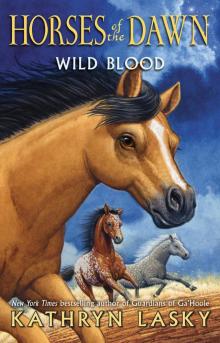 Wild Blood
Wild Blood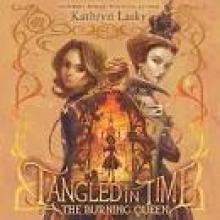 Tangled in Time 2
Tangled in Time 2 The Siege
The Siege Hannah
Hannah Elizabeth
Elizabeth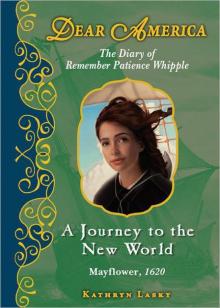 A Journey to the New World
A Journey to the New World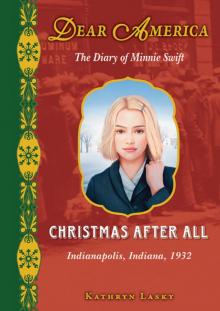 Christmas After All
Christmas After All Mary Queen of Scots
Mary Queen of Scots